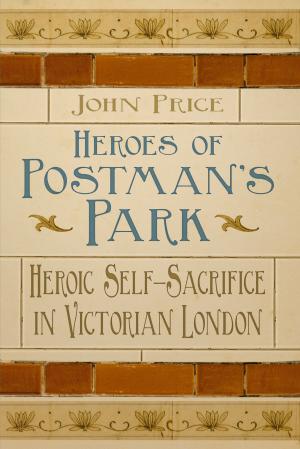Great Mistake
The Battle for Antwerp and the Beveland Peninsula, September 1944
Nonfiction, History, Military, World War II| Author: | Peter Beale | ISBN: | 9780752495040 |
| Publisher: | The History Press | Publication: | August 19, 2004 |
| Imprint: | The History Press | Language: | English |
| Author: | Peter Beale |
| ISBN: | 9780752495040 |
| Publisher: | The History Press |
| Publication: | August 19, 2004 |
| Imprint: | The History Press |
| Language: | English |
On 4 September 1944, the British 11th Armoured Division entered Antwerp, capturing the docks intact with Belgian assistance. It was eighty-five days, however, before the first Allied cargo ship reached the docks on 28 November. In the meantime, some 80,000 soldiers of the German 15th Army slipped across the Scheldt Estuary and escaped towards Germany along the Beveland peninsula. Had 11th Armoured Division immediately sealed off the peninsula where it joined the mainland, the Allies could have eliminated 15th Army and opened Antwerp's port much earlier. The enormous logistical benefits potentially gained by such an action could have allowed the Allies to cross the Rhine and defeat Nazi Germany by the end of 1944. Instead, the war was to continue for another nine months. Inefficient command structures, conflicts between Allied commanders and differing American and British military cultures all contributed to a huge missed opportunity, in what historians describe as 'The Great Mistake'. Second World War veteran Peter Beale examines the background, considers the actions taken and forgone between 4 and 26 September, and reviews their effects on subsequent operations. Supporting his account with maps and archive photographs, he draws on official war diaries, unit histories and personal recollections to assess what really happened in 'The Great Mistake'.
On 4 September 1944, the British 11th Armoured Division entered Antwerp, capturing the docks intact with Belgian assistance. It was eighty-five days, however, before the first Allied cargo ship reached the docks on 28 November. In the meantime, some 80,000 soldiers of the German 15th Army slipped across the Scheldt Estuary and escaped towards Germany along the Beveland peninsula. Had 11th Armoured Division immediately sealed off the peninsula where it joined the mainland, the Allies could have eliminated 15th Army and opened Antwerp's port much earlier. The enormous logistical benefits potentially gained by such an action could have allowed the Allies to cross the Rhine and defeat Nazi Germany by the end of 1944. Instead, the war was to continue for another nine months. Inefficient command structures, conflicts between Allied commanders and differing American and British military cultures all contributed to a huge missed opportunity, in what historians describe as 'The Great Mistake'. Second World War veteran Peter Beale examines the background, considers the actions taken and forgone between 4 and 26 September, and reviews their effects on subsequent operations. Supporting his account with maps and archive photographs, he draws on official war diaries, unit histories and personal recollections to assess what really happened in 'The Great Mistake'.















